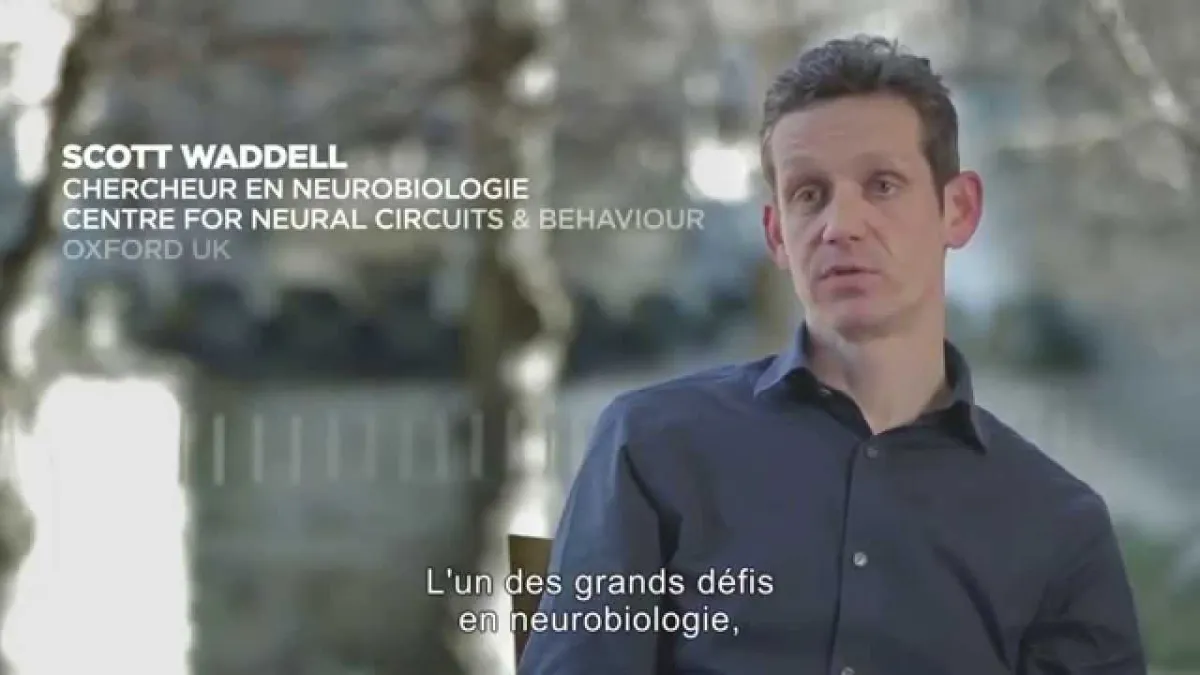Scott Waddell Unlocking the mysteries of memory
Scott Waddell, neurobiology professor and team leader, research director at Pembroke College, University of Oxford, UK, Co-Director and Vice-Director, Oxford Martin School Programme on Mind and Machine and Centre for Neural Circuits & Behaviour, Oxford, UK.
- 2014 • Liliane Bettencourt Prize for Life Sciences

In Oxford, Scott Waddell turns upside down the way we understand the uniqueness of each brain. His research on the fruit fly shed new light on the mechanisms of memory, all the way down to the single neuron. His work could reveal what makes singular the behaviour of each individual.
Scott Waddell knows how to implant a fake memory into a fruit fly's brain. As he directly manipulates small groups of neurons he knows just as well how to make them hungry. At Oxford University, he tweaks those fly behaviours in order to access the nuts and bolts of memory. This approach has brought about an unexpected discovery, which could, amongst many other things, explain the differences in personalities between identical twins. Scott Waddell especially inspected the insect-specific brain structure dedicated to memory called the mushroom bodies. There, he found out that each member of the neuron group α/β presents a distinct genetic makeup. Transposable genetic elements are responsible for this quirk. These small DNA sequences jump from one cell to another and randomly insert themselves into the genomes of the mushroom bodies neurons. Such jumping genes could be held accountable for the slight differences in the responses of the flies to their environment.
The Fondation Bettencourt Schueller rewards Scott Waddell for his discoveries and endows him with a prize that will help his team caracterize gene transpositions at the scale of the single neuron. The scope of this work reaches far beyond basic research and could bring important medical applications. In human beings, schizophrenia, addiction and age-related dementia have been correlated with abnormal rates of gene transpositions in brain regions that are analogous to those studied by Scott Waddell in fruit flies.
Liliane Bettencourt Prize for Life Sciences
The Liliane Bettencourt Prize for Life Sciences rewards each year a researcher under the age of 45 for the excellence of their work and their remarkable contribution to their field of scientific research. This prize is awarded, depending on the year, to a researcher based in France or working in another European country. Thirty winners have been awarded since 1997. From 2023, prize rewards the laureate up to 100,000 euros.
All the award-winners